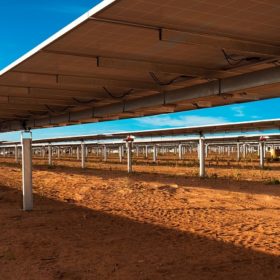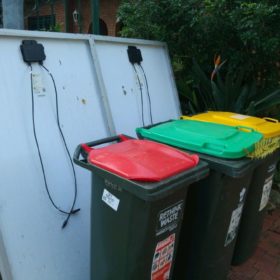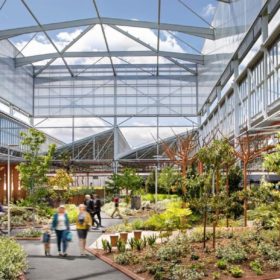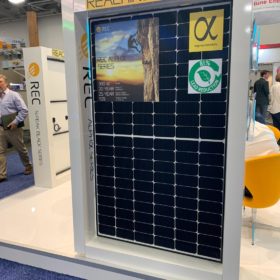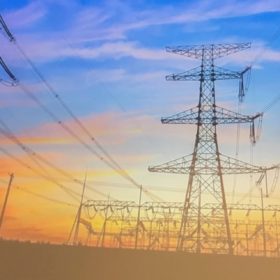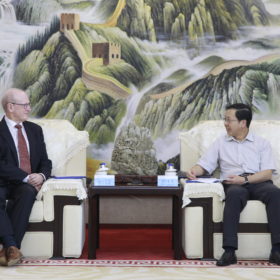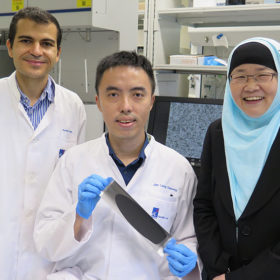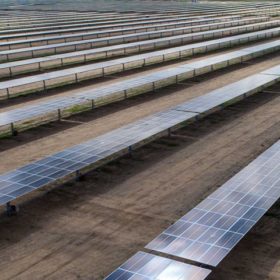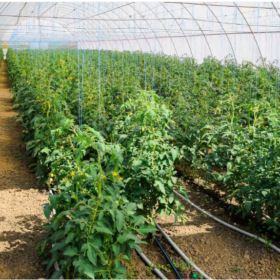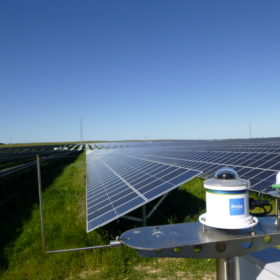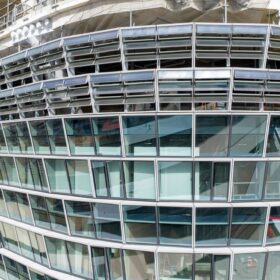DuPont on the hunt for Aussie field survey partners
Over the last decade, materials giant DuPont has surveyed more than 2 GW of PV installations and analyzed a range of failure types and their causes. Hong-Jie Hu, DuPont’s solar technical and development lead in China, says that the company is looking for Australian partners for its Global Field Survey program – with a particular interest in hot and humid and desert environments.
Deakin researchers find ‘Holy Grail’ of PV module recycling
Researchers from Deakin’s Institute for Frontier Materials claim to have solved the biggest problem that’s preventing photovoltaic cells from being recycled.
Installation of one of Australia’s largest rooftop solar arrays underway
The first rows of solar panels have been laid on the roof of the Main Assembly Building at Tonsley Innovation District. The 2.34 MW solar array will ultimately work in conjunction with on-site battery storage and smart technologies as part of South Australia’s first district energy scheme.
REC to launch Alpha Series in Australia
The Norwegian solar manufacturer is planning to debut its Alpha Series heterojunction (HJT) modules at next week’s All-Energy event in Melbourne. Touted as the world’s highest power 60-cell solar panels, the new series promises over 20% more energy production than other modules with the same footprint and added value for home owners.
AEMC proposes to overhaul energy pricing and transmission
The Australian Energy Market Commission (AEMC) has released a discussion paper toward a blueprint for the coordination of generation and transmission investment. The draft proposal seeks to overhaul wholesale pricing and transmission access toward lowering electricity costs and the ever-increasing risks inherent in getting new renewable energy generation into the network.
Lyon Group and China Huadian join forces in the war on curtailment
Solar infrastructure developer Lyon Group has strengthened its ties in the Asian markets through a significant joint-venture with two of Asia’s largest energy generators. The agreement will see integrated battery storage systems utilised to reduce the risk of curtailment and increase the flexibility of renewable energy plants.
A carbon scaffold to boost lithium-sulfur performance
Scientists at Singapore’s Agency for Science, Technology and Research have developed a new method to produce lithium-sulfur based cathodes which exhibit stable performance and high storage capacity over 200 cycles. According to the agency, this represents “a promising step towards the commercialization of lithium-sulfur batteries.”
“Massive” risk potential as EPCs cut corners on solar project components
A global supplier of electrical cabling for utility scale PV projects has warned that some Australian EPCs are not adopting international solar-industry norms on projects, potentially leading to “massive risk.” Swiss supplier Leoni reports that considering the vast scale of some solar projects in Australia that potential failures could be particularly costly.
New chapter for solar+agriculture: BIPV for off-grid greenhouses
A new partnership is seeking to build a world-first off-grid greenhouse which will use solar glass to maintain optimal temperature and regulate irrigation by condensation inside the facility.
Self-forecasting of renewable generation to improve solar farm economics
ARENA’s round of funding for renewable-energy forecasting technologies, initiated in early 2018, is coming to fruition, with wide-ranging benefits for solar farm earnings and the stability of a low- to no-carbon NEM.
